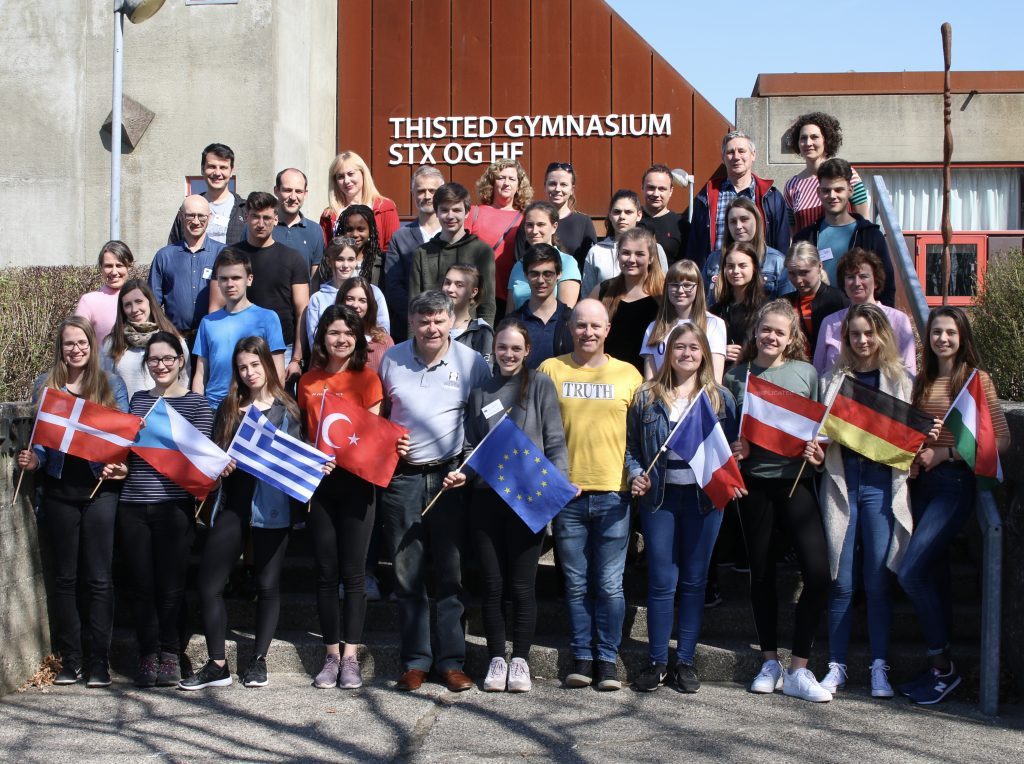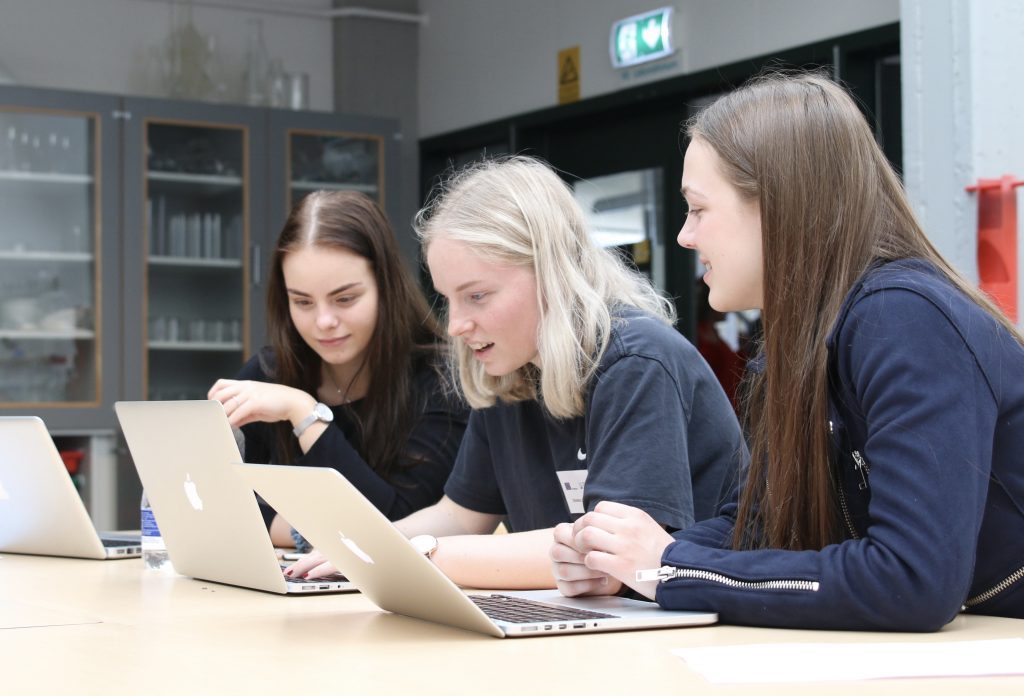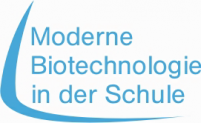The Erasmus+ group met in Thisted, Denmark to prepare two teaching modules on the project sustainability. On the one hand, a module for the production of biohydrogen by anaerobic fermentation was developed. One the other hand the second module prepared in Thisted focuses on the production of sustainable electrical energy using a microbial fuel cell. In the next laboratory workshop, which will take place in Vienna in November 2018, both modules will be experimentally evaluated in order to implement them in teaching and teacher training. In Vienna the focus will therefore be on the production of biohydrogen by fermentation, the operation of a fuel cell with the produced hydrogen and the operation of a windmill with the produced electrical energy.

Yeast will also be used to generate electrical energy in a microbial fuel cell in order to test which consumers can be powered by the energy generated.
The pupils translated the teaching modules into their mothers tongues. This also gave them the biochemical and biophysical background knowledge to use these technologies to generate sustainable energy. A trip to the National Test Centre for Windmills in Østerild showed the dimension of today’s sustainable energy production, which can produce up to seven megawatts of electricity.

In order to get to know the Danish culture better, the students were accommodated in host families. All participants practiced activities such as stand up paddling, mountain biking or hiking in Thy National Park. The group also visited the Bunker Museum in Hanstholm, an impressive relic from the second World War.
